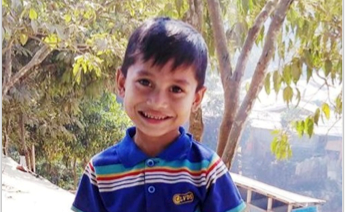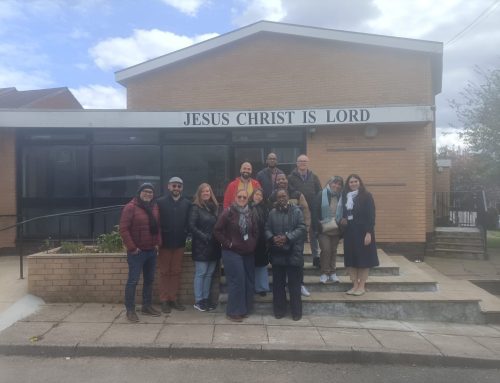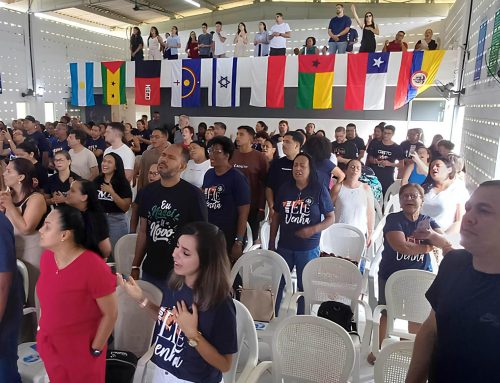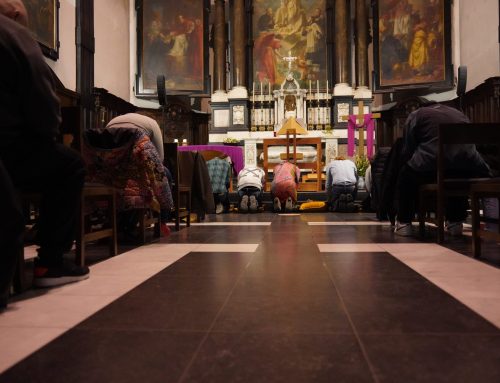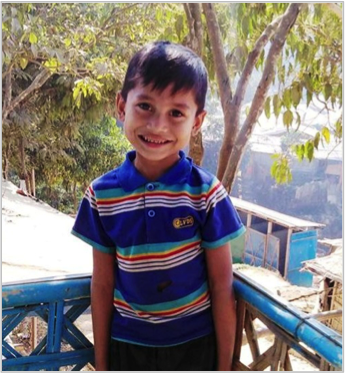 A child friendly space in Bangladesh provides Rohingya refugee children continued schooling, counseling, nutritious meal
A child friendly space in Bangladesh provides Rohingya refugee children continued schooling, counseling, nutritious meal
Seven-year-old *Arpan draws a sketch of his grandfather at the Child Friendly Space (CFS) he attends in Cox’s Bazar, Bangladesh.
He sketches his grandfather because he misses him so much.
Arpan is one of more than 400,000 Rohingya children living in one of the world’s largest refugee camps, near Bangladesh’s border with Myanmar.
When the violent conflict started in the Rakhine region of Myanmar in August 2017, Arpan’s family lost their home and everything their family owned when, reportedly, government soldiers burned down their house in an attack on their community. Worse still, Arpan says the soldiers killed his beloved grandfather.
Arpan’s parents fled in terror with the boy and his siblings across the border into Bangladesh, like nearly a million other members of the Rohingya people. It took them seven days to reach safety.
“We ate leaves of trees and drank river water to survive,” he said.
Arpan misses his school days back home, and he hopes that one day his family can return. However, for now he is able to attend informal school in the camp, through the Bangladesh Nazarene Mission’s Child Friendly Space Project, where Arpan experiences care, purpose and hope for each day.
“There is a daily routine in CFS that helps children to regain a sense of normalcy and recover from the upheaval and violence they have experienced in the conflict,” said a BNM leader. “They get the psychosocial support they need to process their grief and loss in their childhood. The children also have been taught basic health and hygiene and life skills, including morality, in a safe and fun environment.”
BNM established the project by working with government authorities to secure permissions and land, and to decorate the space with child-friendly materials, furniture and accessories. Then they assessed refugee families to identify 200 children most at risk to enroll in the CFS. BNM screened and hired local, qualified staff to run the CFS, because they speak the refugees’ language.
The CFS involves three major interventions. The first is the informal education, designed to keep the children, including Arpan, in regular learning so that when they are allowed to settle permanently, they will be able to re-enroll in mainstream, formal education. Second, health, nutrition and hygiene awareness sessions are offered to the children and adolescent girls. Third, counseling services, with a focus on Christian values and worldview, are available to children who experienced trauma and emotional or mental distress.
“Arpan says that he enjoys drawing, moral stories and rhymes in the CFS,” said a BNM leader. “He also likes the meal. It is very rare he misses classes at CFS.”
*Name changed for security reasons.
This article was written by Bangladesh Nazarene Mission and Gina Pottenger and previously published in the August 2019 edition of Where Worlds Meet.
